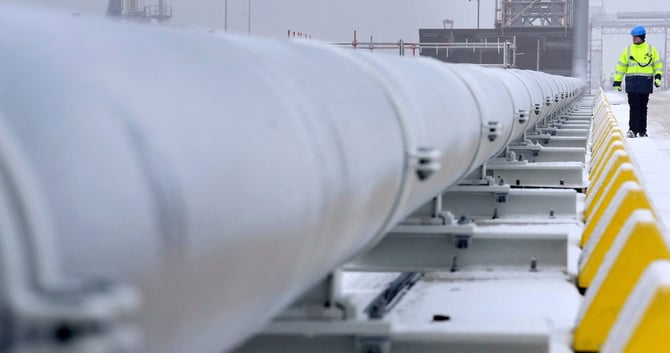Europe Agrees to Cap Gas Prices

EU energy ministers have agreed to temporarily cap natural gas prices, after months of furious debate over whether the measure will protect European households and businesses from extreme price spikes during the winter.
Europe will trigger the cap if the price of month-ahead natural gas futures contracts on the benchmark Dutch Title Transfer Facility (TTF) goes higher than $191 per megawatt hour for more than three consecutive working days.
The price ceiling is much lower than the $292 per megawatt hour threshold originally proposed by the European Commission just last month.
As an additional measure, the TTF liquified natural gas (LNG) month-ahead price must also be $37 higher than a reference price for the same period for the cap to be activated. Prices for LNG, transported in sea tankers, are closely linked to prices for Europe’s natural gas delivered by pipelines.
The cap is the latest in a swathe of measures agreed to by the EU this year to stem an energy crisis sparked by Russia’s invasion of Ukraine that has pushed up prices and fueled the highest inflation in decades.
What does this mean for me?
Energy ministers are calling the measure a temporary mechanism that will protect citizens and businesses from the excessive gas prices that were seen in the summer. They insist the cap is not fixed, but rather is dynamic. However, analysts and traders remain concerned the measure could backfire and lead to increased prices and supply shocks.
More News

Copper Prices Head Into Uncharted Territory
3 days ago

Silver’s Surge Shows Rate-Cut Bets and a New Layer of Trade Risk
1 week ago
.webp)
Gold’s Breakout Year Sets a High Bar for 2026
2 weeks ago
.webp)
Europe’s Gas Chill Turns Into a Price Rout
3 weeks ago

The Rare Earths Boom Driving a New Global Supercycle
1 month ago
.webp)
Brent Rises as Fresh U.S. Sanctions Choke Russian Oil Exports
1 month ago

Global Wind Market Set to Hit $304 Billion by 2029
2 months ago
.webp)
Gold Cools After Record Surge as Dollar Strengthens
2 months ago